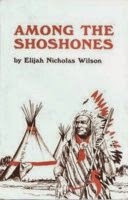Section: Alma 62-Helaman 5
Helaman 2:8 servant of Helaman speaks
to Kishkumen
Helaman 5:6 Lehi & Nephi recall the words which their
father spake
Helaman 5:9, 10 Flashback to King
Benjamin’s sermon and to Amulek’s speaking to Zeezrom
Helaman 5:26 Nephi and Lehi speak
to the crowd while encircled by fire
Helaman 5:29, 32, 33 Voice of an
angel crying repentence 3X
Helaman 5: 38-42 Dialogue between
crowd and Aminidab
Helaman 5: 47 Voice from heaven
declaring peace
Specific section analyzed: Helaman 5: 6,9-10
“Behold, my sons, I desire that ye should remember to
keep the commandments of God; and I would that ye should declare unto the people
these words. Behold, I have given unto you the names of our first parents who
came out of the land of Jerusalem; and this I have done that when you remember
your names ye may remember them; and when ye remember them ye may remember
their works; and when ye remember their works ye may know how that it is said,
and also written, that they were good
 O remember, remember, my sons, the words which king
Benjamin spake unto his people; yea, remember that there is no other way nor
means whereby man can be saved, only through the atoning blood of Jesus Christ,
who shall come; yea, remember that he cometh to redeem the world. And remember
also the words which Amulek spake unto Zeezrom, in the city of Ammonihah; for
he said unto him that the Lord surely should come to redeem his people, but
that he should not come to redeem them in their sins, but to redeem them from
their sins.”
O remember, remember, my sons, the words which king
Benjamin spake unto his people; yea, remember that there is no other way nor
means whereby man can be saved, only through the atoning blood of Jesus Christ,
who shall come; yea, remember that he cometh to redeem the world. And remember
also the words which Amulek spake unto Zeezrom, in the city of Ammonihah; for
he said unto him that the Lord surely should come to redeem his people, but
that he should not come to redeem them in their sins, but to redeem them from
their sins.”
In this passage, Helaman begins by clearly stating
that his purpose for addressing his audience (his sons, Nephi & Lehi) is
for them to keep the commandments and declare the gospel. He then establishes his credibility by
alluding to earlier prophets and their words, beginning with a reference to
Nephi & Lehi’s namesakes, and then continuing by paraphrasing King Benjamin
and Amulek. Helaman focuses on the word “remember”, at one point repeating it,
clearly pointing to the teachings of those who went before him. The focal point
of what he asks his sons to look back and recall is the atonement of Jesus
Christ, which was at this point still in the future.

